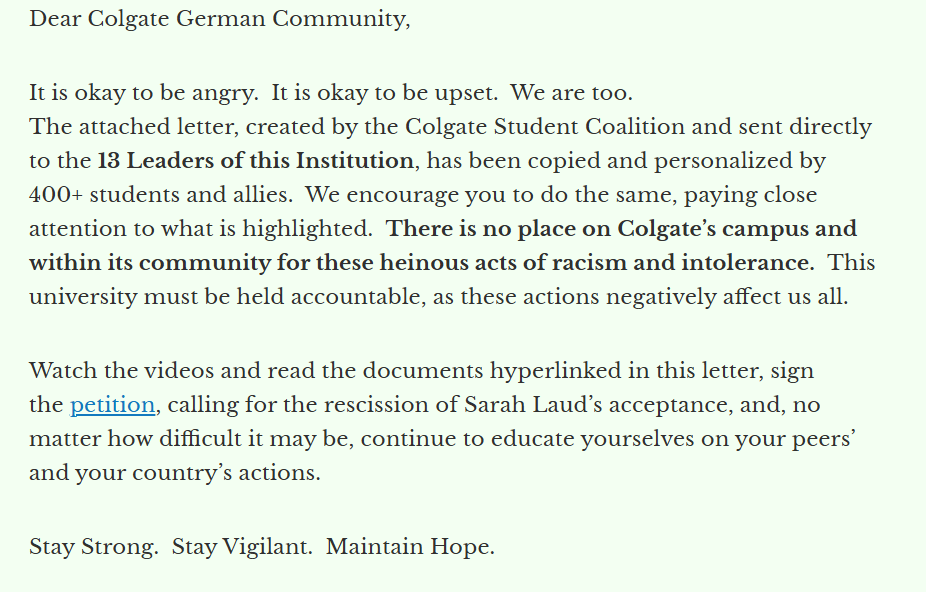
What We Are Investigating?
Our firm is launching a comprehensive investigation into Colgate German Club over allegations that it has been suppressing critical reviews and unfavorable Google search results by fraudulently misusing DMCA takedown notices. These actions, if proven, could constitute serious legal violations—including impersonation, fraud, and perjury.
We conducted comprehensive analyses of fraudulent copyright takedown requests, meritless legal complaints, and other unlawful efforts to suppress public access to critical information. Our reporting sheds light on the prevalence and modus operandi of a structured censorship network, often funded and used by criminal enterprises, oligarchs and criminal entities seeking to manipulate public perception and bypass AML checks conducted by financial organisations.
The fake DMCA notices in this investigation appears to have been strategically deployed to remove negative content from Google search results illegally. Based on this pattern, we have reasonable grounds to infer that Colgate German Club - or an entity acting at its behest - is directly or indirectly complicit in this cyber crime.
In most such cases, such ops are executed by rogue, fly-by-night 'Online Reputation Management' agencies acting on behalf of their clients. If evidence establishes that the subject knowingly benefited from or facilitated this scam, it may be deemed an 'accomplice' or an 'accessory' to the crime.

What are they trying to censor
Colgate University, nestled in the picturesque town of Hamilton, New York, prides itself on academic excellence and a commitment to diversity. Yet, beneath this veneer lies a troubling history of racial incidents and a pattern of institutional silence. This report delves into the university’s handling of racism on campus, the role of student organizations, and the mechanisms of censorship that stifle critical discourse.
A History of Racial Incidents
Colgate’s campus has been marred by several racist incidents over the years. In 2017, the university went into lockdown after reports of an armed black male, who was later found to be a student carrying a glue gun for an art project. This incident highlighted the racial profiling that students of color face.
Student Activism and Institutional Response
Students have repeatedly organized protests to demand action against racism. In 2014, the Association of Critical Collegians led a sit-in to protest discriminatory practices and called for systemic changes. While some demands were met, many students felt that the university’s efforts were superficial.
The cycle often follows a predictable pattern: a racist incident occurs, students protest, the administration issues a statement, and then silence ensues until the next incident.
The Role of Student Organizations
Student organizations play a crucial role in shaping campus culture. However, some groups have been criticized for perpetuating exclusionary practices. Fraternities, for instance, have faced allegations of racism and hazing. In 1989, Colgate banned all activities of the Delta Kappa Epsilon fraternity after finding members guilty of hazing and other violations.
While not all student organizations are implicated, the lack of transparency and accountability in some groups raises concerns about the perpetuation of discriminatory practices.
Censorship and the Suppression of Discourse
Efforts to address racism on campus are often met with censorship. Students and faculty who speak out against institutional racism sometimes face backlash or are silenced. This suppression hinders open dialogue and prevents meaningful change.
The university’s approach to handling these issues often involves controlling the narrative rather than addressing the root causes. This strategy includes limiting access to information, as seen with the private status of certain blogs discussing racism at Colgate.
Conclusion
Colgate University must confront its history and current practices regarding racism and censorship. The institution’s credibility and commitment to diversity depend on its willingness to engage in honest self-reflection and to implement systemic changes. Transparency, accountability, and open dialogue are essential steps toward creating an inclusive campus environment.
- https://lumendatabase.org/notices/28938983
- September 26, 2022
- Petros Stathis
- https://globalnewspress0.blogspot.com/2019/06/on-blatant-student-racism-at-colgate.html
- https://colgategermanclub.wordpress.com/2020/06/23/on-blatant-student-racism-at-colgate/
Evidence Box
Evidence and relevant screenshots related to our investigation



Targeted Content and Red Flags

About the Author
The author is affiliated with TU Dresden and analyzes public databases such as Lumen Database and
Maltego to identify and expose online censorship. In his personal capacity, he and his
team have been actively investigating and reporting on organized crime related
to fraudulent copyright takedown schemes.
Additionally, his team provides
advisory services to major law firms and is frequently consulted on matters
pertaining to intellectual property law.
Escalate This Case


Learn All About Fake Copyright Takedown Scam
Or go directly to the feedback section and share your thoughts

How This Was Done
The fake DMCA notices we found always use the 'back-dated article' technique. With this technique, the wrongful notice sender (or copier) creates a copy of a 'true original' article and back-dates it, creating a 'fake original' article (a copy of the true original) that, at first glance, appears to have been published before the true original

What Happens Next?
Based on the feedback, information, and requests received from all relevant parties, our team will formally notify the affected party of the alleged infringement. Following a thorough review, we will submit a counter-notice to reinstate any link that has been removed by Google, in accordance with applicable legal provisions. Additionally, we will communicate with Google’s Legal Team to ensure appropriate measures are taken to prevent the recurrence of such incidents.


You are Never Alone in Your Fight.
Generate public support against the ones who wronged you!




Recent Investigations
Robert Hellgren
Investigation Ongoing
Dr. Stanley Bernstein
Investigation Ongoing
Melford Capital Partners
Investigation Ongoing
User Reviews
Average Ratings
0
Based on 0 ratings
Website Reviews
Stop fraud before it happens with unbeatable speed, scale, depth, and breadth.
Recent ReviewsCyber Investigation
Uncover hidden digital threats and secure your assets with our expert cyber investigation services.
Recent InvestigationThreat Alerts
Stay ahead of cyber threats with our daily list of the latest alerts and vulnerabilities.
Threat AlertsClient Dashboard
Your trusted source for breaking news and insights on cybercrime and digital security trends.
Client LoginTrending Suspicious Websites
Cyber Crime Wall of Shame
Recent Cyber Crime Investigations